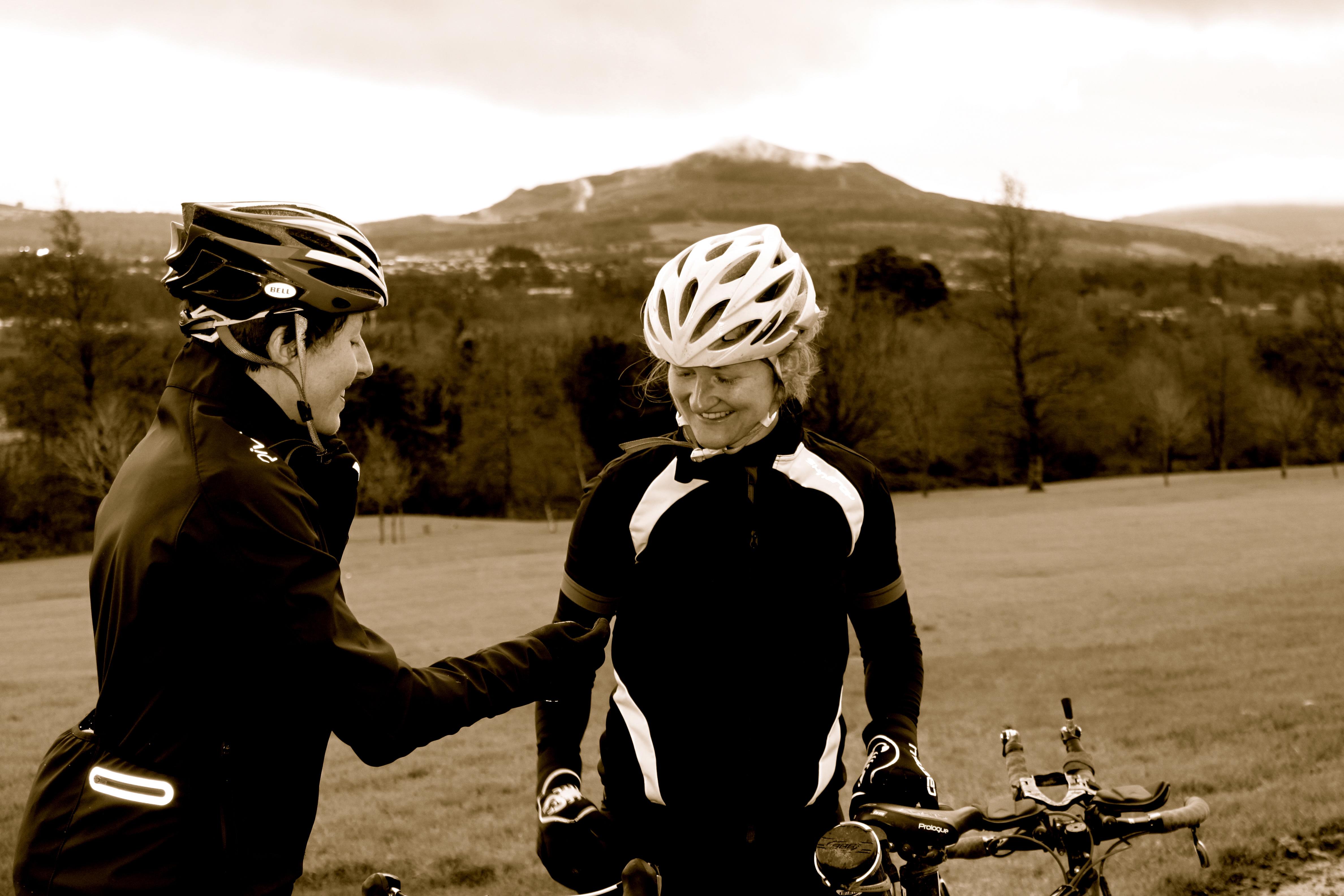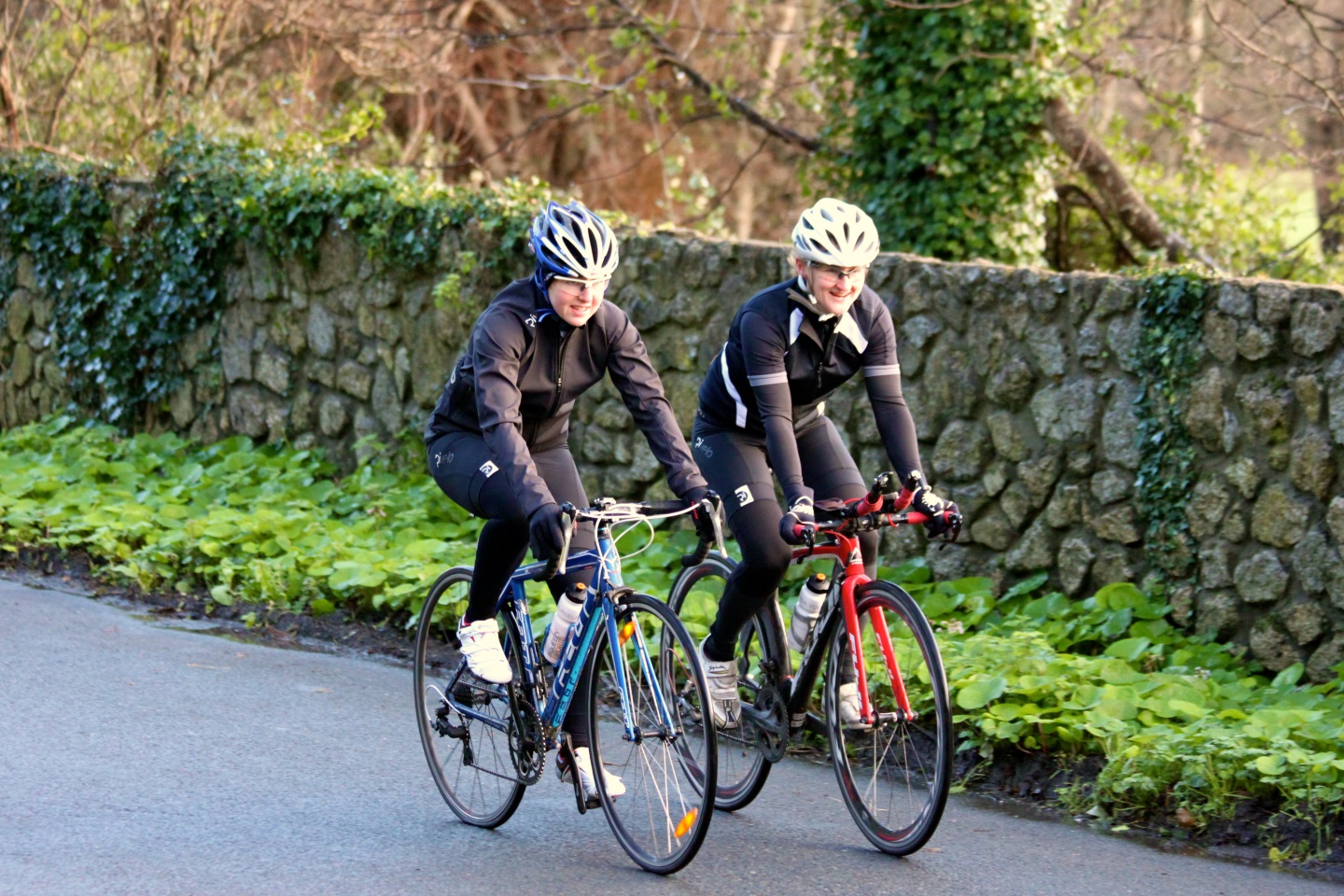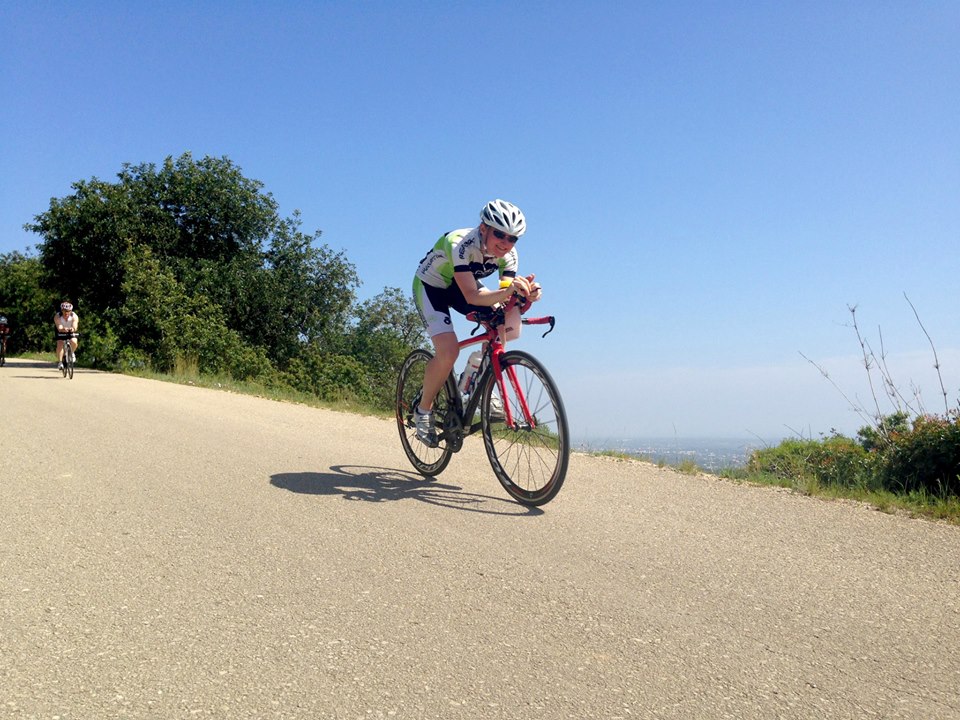 Both Nikki and I come from a team sport background. Nikki spent much of her youth and twenties playing soccer, and I spent much of mine playing hockey and later rugby 7s.
Both Nikki and I come from a team sport background. Nikki spent much of her youth and twenties playing soccer, and I spent much of mine playing hockey and later rugby 7s.
The thing I have always loved about teams and team sport is shared experience. I always found a way to run harder for other people. I loved the team gym sessions where you were lifting to your own maximum, but also working hard to bring up the overall average. For me, there’s something about combination play that leads to a goal that is far more attractive and satisfying than the instances of individual brilliance that produce the same result. It is often harder to achieve with a group because there are more variables, personalities, beliefs and skillsets; yet for this very reason, it is often a much richer experience to succeed, or indeed fail with others.
Being in a team means training together, setting goals and expectations that others hold you accountable for, a common purpose, playing a specific role which is integral to the overall plan, operating in diversity, and being yourself but working well in a group. It means putting the team before yourself and going through highs and lows with others.
People I played team sport with often say to me, ‘Do you not get bored on your own?’ ‘Is there anything in cycling like scoring a goal?’ ‘Oh, I could never go for hours on my own, I need something or someone to chase.’
Is cycling really an individual sport?
Cycling gives you a wonderful freedom to get out on the road whenever suits your schedule. Pretty soon you can find yourself on a quiet country road, feeling more mindful by the minute. Sometimes just getting out on your own allows you time out with your own thoughts, or free rein to push as hard, or go as slow as you like. It’s also a great way to see the country, and the best excuse for coffee and a scone I know of!
Of course, there are the perks of individual pursuit to be found in cycling, but in so many ways, there is also the team experience.
 In joining a club, you immediately have training partners, set training times, coaches and people doing the same thing as you. On a group spin, you have responsibilities to others, common language and signals, and the combined output of a group always exceeds what you could do on your own. There is opportunity to find lifelong friends, have a nonchalant natter, speed date on 2 wheels as you ‘up-and-over’, or simply enjoy exercise with some likeminded people.
In joining a club, you immediately have training partners, set training times, coaches and people doing the same thing as you. On a group spin, you have responsibilities to others, common language and signals, and the combined output of a group always exceeds what you could do on your own. There is opportunity to find lifelong friends, have a nonchalant natter, speed date on 2 wheels as you ‘up-and-over’, or simply enjoy exercise with some likeminded people.
There is the opportunity to compete regardless of your age, gender or ability. In particular, sportives have an amazing way of allowing everyone to achieve the same thing on the same day, and only finish time will be different. The sincere camaraderie and palpable collective energy I felt doing the recent Wicklow 200 gave me that same sense of shared experience as team sport. Everyone wants you to go well, and the unconditional support other give you for your own personal endeavour is magic.
Team SOS: What happens when the support crew joined the riders...
A few months after I retired from international sport, Nikki and I made the decision to enter the Race Around Ireland and so began a 10 month period of, for the most part, training alone. This requires an average of 20 hours a week of sitting on a bike in all weather conditions, all kinds of emotions and in all degrees of enthusiasm levels. There are some exceptions to this; we try and head out on weekend club spins when our lives and training plan allow, and we also tend to do a few spins per together each week. Essentially though, we are training for an event which will result in hours of solidarity and having to cope with that on your own. Like most things in life, the only way to get good at that is to practice and develop methods of dealing with the tricks your mind will inevitably play on you. So, that’s what we have done for the last 8 months - try to get good at being alone and pressing on when times get tough.
At least, that is what I envisaged until 3 days ago when we ran our first training weekend for our Team SOS support crew. This was a fascinating experience and far more intense than I could have imagined. It was the first time we had managed to get the majority of the crew together. The experience levels of the individuals varied hugely, a couple had experience of crewing but for the most part everyone was coming into the weekend without really knowing what they had signed up for, or indeed anyone else who had agreed to crew too. The one common factor was that everyone was there because they wanted to support us- something Nikki and I were really taken aback by.
After each crew member introduced themselves, there was a briefing on what the roles of the crew entailed and what they had each let themselves in for, and a quick lesson and practice on how to change a tube. After that we headed out for an afternoon spin to teach the crew how to navigate from the route book, how to communicate this navigation to us, and how to drive a support car during the daytime. The group were split into teams of 3, each supporting one rider. From the moment we set off it was like being back on a team again. There was a reliance and trust in other people to keep you safe, to keep you heading in the right direction and to help bring the best out of you. There was a huge need for concise, clear communication and specific roles to be fulfilled as part of the support car crew. Role responsibilities and team cohesion was further tested later that night when we ventured out for our first night ride. During the night the support vehicle is required to remain directly behind the rider at all times to provide a safety barrier from other traffic, to direct the rider and to also light the road ahead for them.
 What I noticed most was being acutely aware of the presence of my team. I only spent 3 hours cycling in the 24 hour period but not once did I feel that solidarity that I had expected, in fact it was the complete opposite. I felt like I was with them for the entire period, even when they had leap-frogged me in the daytime to shoot down the road to the next turn point. More so than that though, I felt a weight of responsibility to not let them down. This wasn't in a negative way, it just focused my mind into doing the best I could because I knew that they were doing the best they could for me. It was the first time since leaving a team sport environment that I had experienced that feeling of being part of a team again, working together to achieve a goal, and I absolutely loved it. It put a completely different spin on the race for me and really showed me how much of a team race this was going to be. The outcome of this race will only partially be determined by the ability Nikki and I have to cycle for long distances. The real determining factor will be how well the crew and ourselves work together to circumnavigate this race. We have a great crew of people around us for the race and I cannot wait to experience this adventure with my team.
What I noticed most was being acutely aware of the presence of my team. I only spent 3 hours cycling in the 24 hour period but not once did I feel that solidarity that I had expected, in fact it was the complete opposite. I felt like I was with them for the entire period, even when they had leap-frogged me in the daytime to shoot down the road to the next turn point. More so than that though, I felt a weight of responsibility to not let them down. This wasn't in a negative way, it just focused my mind into doing the best I could because I knew that they were doing the best they could for me. It was the first time since leaving a team sport environment that I had experienced that feeling of being part of a team again, working together to achieve a goal, and I absolutely loved it. It put a completely different spin on the race for me and really showed me how much of a team race this was going to be. The outcome of this race will only partially be determined by the ability Nikki and I have to cycle for long distances. The real determining factor will be how well the crew and ourselves work together to circumnavigate this race. We have a great crew of people around us for the race and I cannot wait to experience this adventure with my team.
